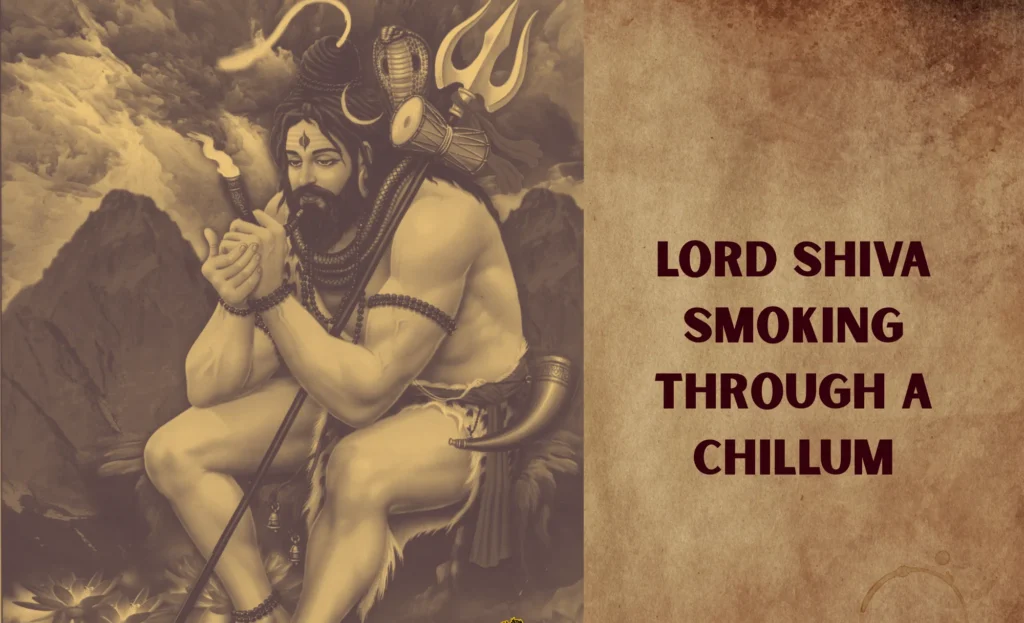Laws About the Herb in India India has a deep and complex relationship with the…
Chillums in India: History, Culture & Legal Status

Chillums are one of the oldest and simplest smoking devices, traditionally made of glass, clay, wood, or stone. These straight pipes usually measure between 3 to 6 inches, with a wider bowl on one end and a narrower mouthpiece on the other. Compact, portable, and easy to use, they remain popular for quick and discreet smoking sessions.
Shop Chillums Online
👉 Available Now at StrongBong
Origins & Global Adoption
In India, chillums have long been associated with ascetics, especially sadhus devoted to Lord Shiva, who used them as a spiritual tool to connect with higher consciousness. By the late 1960s, Western travelers and hippies embraced chillums, carrying them back to Europe and America, where they became symbols of counterculture and freedom.
Interestingly, variations of chillums exist worldwide. In Afghanistan, for example, “chillam” often refers to a type of hookah pipe, while the bowl is called “sarchana.” Early versions of such smoking devices appeared in Persia and Mughal India, often crafted from coconut shells, bamboo, and clay. These designs likely influenced the modern chillum.
Though historians debate their true origin, evidence shows chillums being used in India as early as the 18th century. Whether they first appeared in Africa or South Asia, they hold a special place in India’s spiritual and cultural history.
Are Chillums Legal in India?
Here’s where things get complicated.
The Narcotic Drugs and Psychotropic Substances (NDPS) Act, 1985 makes it illegal to produce, sell, or consume cannabis buds, resin, or related derivatives. However, the act does not explicitly ban smoking accessories like rolling papers, pipes, bongs—or chillums.
This creates a gray area in the law. While chillums themselves are not banned, they can be considered “drug paraphernalia” depending on local authorities and circumstances. Just as soda water is legal even though it’s often used to mix alcohol, chillums are legal to own but could attract scrutiny if linked to contraband use.
👉 Bottom line: Always check regional laws before purchasing or using chillums.
Notable Cases in India
Vadodara, 2019 – A university vigilance team caught three students with a chillum. They admitted to using it only for tobacco. Since no contraband was found, they escaped with just a written apology.
Panchkula, 2025 – Police raided Purple Frog Club, seizing seven chillums alongside hookahs. The issue wasn’t the chillums, but that the establishment lacked a valid hookah bar license. Two managers were arrested.
Jaipur, 2022 – Police cracked down on five cafes, seizing chillums, hookahs, and pipes, leading to multiple arrests.
A Curious Tale, 2025 – A man named Khunti Guru, thought to be dead in the Mahakumbh tragedy, resurfaced weeks later. He had simply been spending time with sadhus, smoking chillums in meditation.
These stories show how chillums straddle the fine line between cultural tradition and legal complications.
Spiritual & Religious Importance
For centuries, chillums have been part of Indian spiritual practices. The naga sadhus, known for living unclothed even in freezing conditions at the Kumbh Mela, use chillums as a way to stay warm and deepen meditation.
Mahant Ghanashyam Giri once remarked:
“Chillum smoking is not about intoxication. It helps strengthen focus, conserve energy for penance, and even reduce worldly desires. What matters is self-control—the chillum should serve you, not the other way around.”
In states like Odisha, where cannabis flower consumption has legal loopholes, chillums are more openly used in cultural and religious gatherings.
Conclusion
Chillums are more than just smoking tools—they carry centuries of tradition, spirituality, and cultural relevance in India. However, the law remains unclear, making it essential for enthusiasts to stay informed and cautious.
✅ If you’re considering buying one, always review your local regulations.
✅ Use responsibly, and respect both the tradition and the law.
✨ Final Thought: Whether used for meditation by sadhus or as a collector’s item by enthusiasts, the chillum stands as a symbol of India’s rich spiritual heritage.
Recent post
Chillums in India: History, Culture & Legal Status
Chillums in India: History, Culture & Legal Status Chillums are one of the oldest and…
Blazy Susan Deluxe Rolling Kit – Pink: Your Pocket-Sized Rolling Station
Blazy Susan Deluxe Rolling Kit – Pink: Your Pocket-Sized Rolling Station Looking for a sleek,…
Indian Stoner Lingo: The Ultimate Desi Dictionary
Indian Stoner Lingo: The Ultimate Desi Dictionary If you’ve ever sat in a smoky room…
Clipper Gas Refills in India: Keep Your Lighters Blazing
Clipper Gas Refills in India: Keep Your Lighters Blazing Why Every Stoner Needs a Reliable…
Why Every Indian Stoner Needs a Glass Martini Bowl Shooter
Why Every Indian Stoner Needs a Glass Martini Bowl Shooter Level Up Your Bong Hits…
Lighters & Refills in India: Why Every Smoker Needs the Right Flame
Lighters & Refills in India: Why Every Smoker Needs the Right Flame Lighting Up the…
Grindtainer: The 2-in-1 Solution Every Indian Stoner Needs
Grindtainer: The 2-in-1 Solution Every Indian Stoner Needs Introduction: Meet the Grindtainer Every seasoned smoker…












